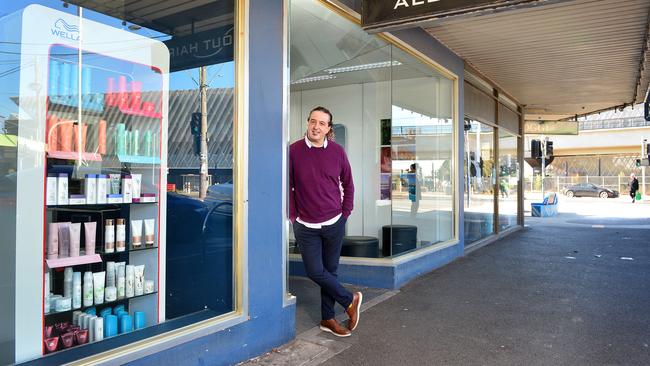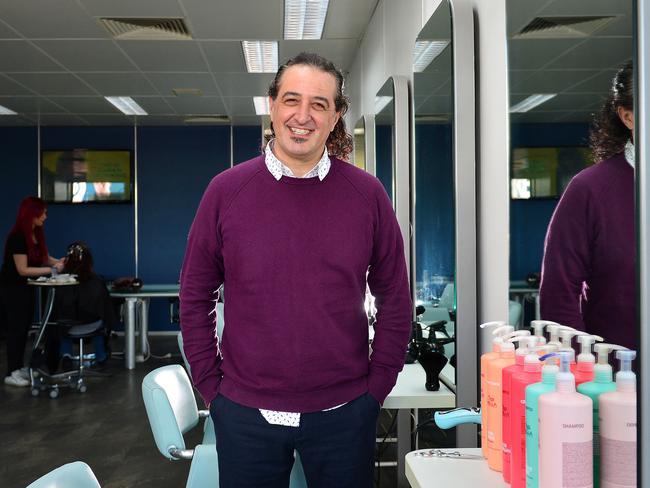Why Australian small businesses shouldn’t ‘waste’ coronavirus crisis
Small businesses are being challenged like never before. But those who embrace the pressure stand a better chance of weathering the storm, experts say.

Business
Don't miss out on the headlines from Business. Followed categories will be added to My News.
Don’t waste a crisis — that’s the key message for business survival during the pandemic from veteran management consultant Nigel Marsh.
Mr Marsh recommends businesses embrace the challenge.
“Run to the fire — not away from it — and ask the big questions so you come out of the current situation as a viable business,’’ he said.
“The key is survival. If you go out of business, it’s game over. People often talk of dealing with a challenge as being a marathon, not a sprint. I say it’s a steeplechase with
a series of obstacles to climb over.”
Mr Marsh has spent more than 30 years as a consultant with organisations, including McDonald’s, Canon, Pepsi, Mars and Fiat.
He has developed a deep understanding of how businesses should respond to challenges such as COVID-19.
He said small business owners must look at a number of areas to decide the best way to survive, such as cash flow, and having a clear idea of how revenue has changed and is likely to change.
“Do not try and outlast the crisis — you need cash. If you are a cafe for example, have a clear view of how much revenue you will have in July and beyond and recalibrate your cost basis. You may have once had X amount and now you have less and that will mean making tough decisions like having fewer staff and operating on a smaller scale.”
CONSIDER YOUR METHOD OF DELIVERY
What value do you provide versus the method of delivery of providing it? If you run a bookshop — that’s a method of delivery.
But you are in the business of selling books and that can mean switching from a bricks and mortar shop to online.
“If you’re a hairdresser with a shop in Barwon Heads you provide haircuts and you may instead provide those from people’s homes. Understand the difference to give you protection in a time like this,” Mr Marsh said.
HOW DO YOU STACK UP AGAINST THE COMPETITION?
Pre-COVID, what value did you add over and above the category norm? “
Do you do anything differently or better than anyone else? If you don’t, don’t be surprised that, when hard times hit, you go bust before other people. Do an honest inventory on how good you are,” Mr Marsh said.
If the result of that inventory isn’t great, think about how you can do better.
COMMUNICATION IS KEY
Small businesses need to stay in touch more than usual with all stakeholders.
Talk to your landlord, bank, accountant, suppliers and customers more often than you did at the start of the year.
“Communication is especially important now, so you are not surprised when your landlord says they are selling the building, or when your biggest debtor says they can’t pay you.
“Let customers know that you are delivering to home, or that you have reopened.
“Don’t be shy and don’t assume that stakeholder relationships will stay the same going forward. At this time, you can’t over-communicate with the people important to your business.”

HOW RESERVOIR HAIRDRESSER KEPT SALON DOORS OPEN
When COVID-19 arrived, Anthony Rodi saw a huge drop in the number of customers walking through the door of his hairdressing salon in Reservoir.
He vowed to stay open and gradually business is picking up again, but he’s had to negotiate a rent reduction and put business loans on hold to ensure he can keep his employees.
“Pre-COVID, we had 140 to 150 customers a week, but by late March that fell to only 30 or 40,” Mr Rodi said.
“But from the start of all this, and before JobKeeper, I decided not to close the salon because my employees have mortgages and rent to pay. I didn’t want to stand any of them down. My aim was just to make enough to pay their wages each week and, thankfully, I’ve been able to do that.”
JobKeeper has helped the business, All About Hair, stay afloat and, in March, Mr Rodi and the neighbouring small businesses appealed to the owners of the building to grant a rent reduction.
MORE BUSINESS NEWS
TERRY MCCRANN: RECOGNISING UNCERTAINTY IS KEY TO SURVIVAL
HOW AUSSIE SMALL BUSINESSES CAN ACCESS $670,000 OF GRANTS
FOUR STEPS SMALL BUSINESSES MUST TAKE NOW TO SURVIVE PANDEMIC
They were given a 50 per cent drop that expires later this month and will then be reviewed.
“If that rent reduction can be extended a little longer that would be a great help because business hasn’t yet returned to normal — and I wonder what will happen in September when JobKeeper expires,” he said.
“If other businesses start closing and people lose their jobs then they won’t be coming in for regular haircuts. There could be a snowball effect.
“But the salon has survived this far and we’ve survived difficult times before. The recession in 2009 was another challenge but we came through that — and I’m confident we will come through COVID.”
